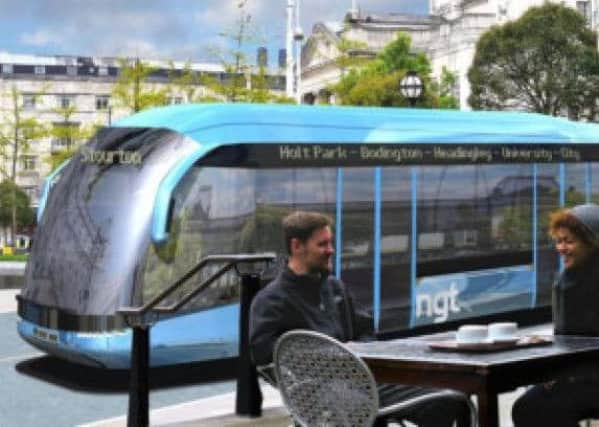YEP Says: Leeds - a city betrayed by decades of failed strategies


Whether you supported the trolleybus scheme, or whether you didn’t, its rejection by the Government, revealed yesterday (May 12), puts any semblance of a coherent transport strategy right back at square one.
Shocking, isn’t it. As one commentator noted on social media: “Manchester to Leeds in 40 minutes, but then 90 minutes sat in a bus to get through Headingley.”
Quite.
Advertisement
Hide AdAdvertisement
Hide AdNearly 30 years on and Leeds is no further forward after spending tens of millions of pounds in various legal costs over Supertram before it was ditched in 2005 and replaced with a trolleybus plan now shunted into the sidings.
Would this have been tolerated in London? No – and here is the evidence. As Supertram was hitting the buffers in 2005 because costs had risen from a projected £100m in the early 1990s to an unviable £1bn, the Crossrail Bill was passing through Parliament paving the way for a new railway across London. Close to completion, it will be named the Elizabeth Line in the Queen’s honour and a second route is now planned. This tale of two cities says it all. Leaving aside the debate about infrastructure investment being skewed in London’s favour, the experience of Supertram and trolleybus in Leeds – now one of the UK’s most congested and polluted cities – offers expensive object lessons in how not to conduct a transport policy.
Schemes on this scale need to benefit the maximum number of residents to meet Government cost-benefit criteria; second, projects must be properly costed from the outset. If Sheffield, Manchester, Nottingham and Newcastle can do it, why can’t Leeds? Third, public confidence is key. Neither plan commanded sufficient support, hence the protracted public inquiry into the trolleybus plan and its detrimental impact on the natural environment. If this was London, the Government would have intervened and provided clearer direction. Why not Leeds? The city does not have time on its side. Stuck in the slow lane without a 21st century transport network, businesses cannot be blamed if they invest in those areas which have planned for the future. Has nothing been learned in 30 years?